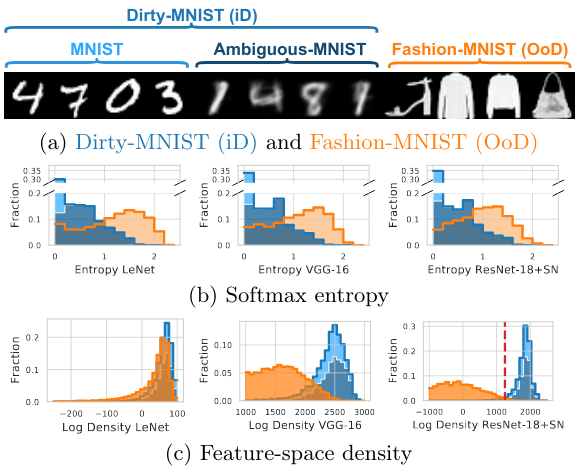Back to all publications...
Deterministic Neural Networks with Inductive Biases Capture Epistemic and Aleatoric Uncertainty
While Deep Ensembles are the state-of-the art for uncertainty prediction, standard softmax neural nets suffer from feature collapse and cannot disentangle aleatoric and epistemic uncertainty. We show that a single softmax neural net with minimal changes can beat epistemic uncertainty predictions of Deep Ensembles and other complex single-forward-pass uncertainty approaches (DUQ and SNGP) while also disentangling uncertainties. Our Deep Deterministic Uncertainty (DDU) is based on three insights: i) predictive entropy confounds aleatoric and epistemic uncertainty, and softmax entropy is inconsistent for OoD points; ii) with appropriate inductive biases, i.e. residual connections and spectral normalization, feature-space density reliably captures epistemic uncertainty; and, iii) density estimation and classification objectives might have different optima. Thus, DDU disentangles aleatoric uncertainty using softmax entropy and epistemic uncertainty using a separate feature-space density estimator after training. Without any fine-tuning on OoD data, we show that DDU performs favourably in active learning and OoD detection on several architectures and datasets.
Jishnu Mukhoti, Andreas Kirsch, Joost van Amersfoort, Philip H.S. Torr, Yarin Gal
Uncertainty & Robustness in Deep Learning Workshop, ICML, 2021
[Paper] [BibTex] [Poster]

